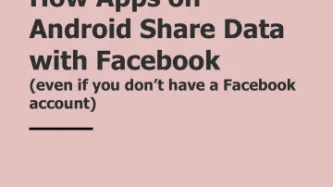Advanced Search
Content Type: State of Privacy
Table of contents
Introduction
Right to Privacy
Communication Surveillance
Data Protection
Identification Schemes
Policies and Sectoral Initiatives
Introduction
Acknowledgement
The State of Privacy in India is the result of an ongoing collaboration by Privacy International and the Centre for Internet & Society.
Key Privacy Facts
1. Constitutional privacy protections: In 2017, the Indian Supreme Court ruled that the Indian constitution guarantees a right to privacy.
2. Data…
Content Type: State of Privacy
Table of contents
Introduction
Right to Privacy
Communication Surveillance
Data Protection
Identification Schemes
Policies and Sectoral Initiatives
Introduction
Acknowledgment
The State of Surveillance in Egypt is the result of an ongoing collaboration by Privacy International and its partners.
Key privacy facts
1. Constitutional privacy protection: The constitution contains an explicit protection of the right to privacy.
2. Data protection law: In August 2018, the Cabinet…
Content Type: State of Privacy
Table of contents
Introduction
Right to Privacy
Communication Surveillance
Data Protection
Identification Schemes
Policies and Sectoral Initiatives
Introduction
Acknowledgement
The State of Privacy in Brazil is the result of an ongoing collaboration by Privacy International and Coding Rights.
Between 2014-2017, Privacy LatAm contributed to previous versions of this briefing.
Key privacy facts
1. Constitutional privacy protection: The constitution contains an explicit…
Content Type: State of Privacy
Introduction
Acknowledgement
The State of Surveillance in Chile is the result of an ongoing collaboration between Privacy International and its Chilean partners Derechos Digitales and Fundación Datos Protegidos.
Key Privacy Facts
1. Constitutional privacy protections: Article 19 of Chile's constitution protects the right to a private life. It was reformed in 2018 to add a specific right to the protection of personal data.
2. Data protection laws: In 1999 Chile became the…
Content Type: News & Analysis
Privacy International welcomes the judgment of the European Court of Human Rights in Catt v the United Kingdom.The Court found that the UK violated the right to privacy (Article 8 of the European Convention on Human Rights) of Mr John Catt, a peace movement activist, who despite having never being convicted of any offence, had his name and other personal data included in a police database known as the “Extremism Database”. The Court found problematic "the variety of definitions of…
Content Type: State of Privacy
Table of contents
Introduction
Right to Privacy
Communication Surveillance
Data Protection
Identification Schemes
Policies and Sectoral Initiatives
Introduction
Acknowledgement
The State of Privacy in Argentina is the result of an ongoing collaboration by Privacy International and Asociación por los Derechos Civiles (ADC).
Key Privacy Facts
1. Constitutional privacy protections: While Argentina's constitution does not mention the word 'privacy', Section 19 has been taken by the…
Content Type: News & Analysis
On 22 January 2019 Google updated its Terms of Service and Privacy Policy for Europe.
The message is quite reassuring:
“Nothing about your experience in Google services will change. And nothing is changing in terms of your privacy settings, the way your data is processed, nor the purposes of its processing”.
Then it says: “However, if you don’t want to accept these changes in our terms and Privacy Policy, you can choose to stop using the applicable services.”
Simple. If you don’t like it,…
Content Type: News & Analysis
We found this image here.
In order for GDPR to be effective at protecting people's data, it must be implemented and enforced. Therefore, we are pleased to see that CNIL has taken action and issued Google a fine of €50 million based on complaints by NOYB and La Quadrature Du Net in May 2018. Despite numerous statements by Google that it takes the protection of people's data seriously, the decision demonstrates that they have a long way to go and that regulators will take action to hold…
Content Type: News & Analysis
Federal law enforcement is deploying powerful computer hacking tools to conduct domestic criminal and immigration investigations.
By Alex Betschen, Student Attorney, Civil Liberties & Transparency Clinic, University at Buffalo School of Law
Hacking by the government raises grave privacy concerns, creating surveillance possibilities that were previously the stuff of science fiction. It also poses a security risk, because hacking takes advantage of unpatched vulnerabilities in our…
Content Type: Press release
FOR IMMEDIATE RELEASE
December 21, 2018
CONTACTS:
Alex Betschen, Civil Liberties & Transparency Clinic, [email protected], 716–531–6649
Colton Kells, Civil Liberties & Transparency Clinic, [email protected], 585–766–5119
Abdullah Hasan, ACLU, [email protected], 646–905–8879
NEW YORK — Privacy International, the American Civil Liberties Union, and the Civil Liberties & Transparency Clinic of the University at Buffalo School of Law filed a lawsuit today…
Content Type: News & Analysis
Photo credit: US Immigration and Customs Enforcement
The trial of Mexican drug lord Joaquin “El Chapo” Guzman started in New York back in November 2018. But last week, the jurors were presented with a trove of new key evidence: dozens of text messages exchanged between Guzman, his wife, and his mistresses.
The reason behind this set of revelations? Guzman had been spying on his wife and mistresses, using publicly-available surveillance software called FlexiSpy. Once installed on his targets…
Content Type: Explainer
Photo credit: warrenski
Mandatory SIM card registration eradicates the potential for anonymity of communications, enables location-tracking, and simplifies communications surveillance and interception. By facilitating the creation of an extensive database of user information, it places individuals at risk of being tracked or targeted, and having their private information misused. In the absence of comprehensive data protection legislation and judicial oversight, SIM users' information can be…
Content Type: Report
A video presentation of the finding of this report can be found here, as presented at 35th Chaos Computer Congress (35C3)Previous research has shown how 42.55 percent of free apps on the Google Play store could share data with Facebook, making Facebook the second most prevalent third-party tracker after Google’s parent company Alphabet. In this report, Privacy International illustrates what this data sharing looks like in practice, particularly for people who do not have a Facebook account.This…
Content Type: App Analysis
This documentation demonstrates actions taken by the test user and the apps subsequent responses.
Test user action 1: The user taps on the application icon, which opens the application
Response from app: The application is initialised and the following data is sent and received by the app:
Immediately after the app is opened, the following data is sent to graph.facebook.com (Graph)
The following HTTP GET request is made to graph.facebook.com
GET https://graph.facebook.…
Content Type: App Analysis
This documentation demonstrates actions taken by the test user and the apps subsequent responses.
Test user action 1: The user taps on the application icon, which opens the application
Response from app: The application is initialised and the following data is sent and received by the app:
Immediately after the app is opened, the following data is sent to graph.facebook.com (Graph)
format: json
sdk: android
event…
Content Type: App Analysis
This documentation demonstrates actions taken by the test user and the apps subsequent responses.
Test user action 1: The user taps on the application icon, which opens the application
Response from app: The application is initialised and the following data is sent and received by the app:
Immediately after the app is opened, the following data is sent to graph.facebook.com (Graph)
The following HTTP GET request is made to graph.facebook.com
GET https://graph.…
Content Type: App Analysis
This documentation demonstrates actions taken by the test user and the apps subsequent responses.
Test user action 1: The user taps on the application icon, which opens the application
Response from app: The application is initialised and the following data is sent and received by the app:
Immediately after the app is opened, the following data is sent to graph.facebook.com (Graph)
The following HTTP GET request is made to graph.facebook.com
GET https://graph.facebook.…
Content Type: Examples
Shortly before the November 2018 US midterm elections, the Center for Media and Democracy uncovered documents showing that the multi-billionaire Koch brothers have developed detailed personality profiles on 89 percent of the US population with the goal of using them to launch a private propaganda offensive to promote Republican candidates. The brothers have also developed "persuasion models" and partnered with cable and satellite TV providers to target voters with tailored messaging during TV…
Content Type: Examples
In 2018, 17 US states and the District of Columbia filed suit to block the addition of a citizenship question to the 2020 census. Emails released as part of the lawsuit show that the administration began pushing to add the question as early as the beginning of 2017, claiming it was to improve enforcement of the 1965 Voting Rights Act. Critics, however, say the question will depress response rates, make the count more expensive and less accurate, and believe the question is intended to…
Content Type: Examples
The Tel-Aviv-based private intelligence firm Black Cube, which is largely staffed by former Israeli intelligence operatives, was involved in a campaign to attack NGOs and businessman-turned-philanthropist George Soros during Hungary's election campaign. Between December 2017 and March 2018, agents using false identities secretly recorded the results of contacts with Hungarian NGOs and individuals connected to Soros. The recordings began appearing in the press three weeks before the election,…
Content Type: Examples
"Buzzer teams" - teams employed to amplify messages and create a buzz on social media - were used by all candidates in the 2017 Indonesian general elections. Coordinated via WhatsApp groups, many of the teams opened fake accounts to spread both positive and negative messages, as well as hate speech. The operators of the most influential accounts could command $1,400 for a single tweet.
https://www.theguardian.com/world/2018/jul/23/indonesias-fake-twitter-account-factories-jakarta-politic…
Content Type: Examples
On the night of June 23, 2016, as the polls closed Britain's Sky News broadcast what sounded like a concession statement from Nigel Farage, the leader of the campaign to leave the EU, plus a YouGov exit poll indicating that the country had voted to remain; over an hour later, Farage reiterated his concession to the Press Association. The combination pushed up the pound on the world's foreign exchanges. A few hours later, when the true result was announced, the pound crashed - but in between a…
Content Type: Examples
Facebook ads purchased in May 2016 by the Internet Research Agency, a notorious Russian troll farm, urged users to install the FaceMusic app. When installed, this Chrome extension gained wide access to the users' Facebook accounts and web browsing behaviour; in some cases it messaged all the user's Facebook Friends. The most successful of these ads specifically targeted American girls aged 14 to 17 and said the app would let them play their favourite music on Facebook for free and share it…
Content Type: Examples
In July 2018, Robert Mueller, the special prosecutor appointed to look into Russian interference in the 2016 US presidential election, charged 12 Russian intelligence officers with hacking Hillary Clinton's campaign and the Democratic National Committee by spearphishing staffers. The charges include conspiracy to commit an offence against the US, aggravated identity theft, conspiracy to launder money, and conspiracy to access computers without authorisation. The hack led to the release of…
Content Type: Examples
In May 2018, a report form Strathmore University's Centre for Intellectual Property and Information Technology (CIPIT) found that some staff at Kenya's Independent Electoral and Boundaries Commission who were mandated to protect voter data made millions of Kenyan shillings by illegally selling private voter data to politicians during the 2017 general election. CIPIT collected campaign messages sent by candidates for MP, Member of County Assembly, the Senate, and representative of women. Any…
Content Type: Examples
In March 2018, Indian Congress president Rahul Gandhi tweeted that the Naramendra Modi app issued by India's ruling Bharatiya Janata Party was leaking user data. The app is intended to spearhead BJP's social media strategy in the run-up to the 2019 general elections; the party hopes to use it to mobilise 100 million BJP members and has set a target of 100,000 downloads for each district. Both privacy activists and political rivals complained that the app asks for too many permissions, is…




















